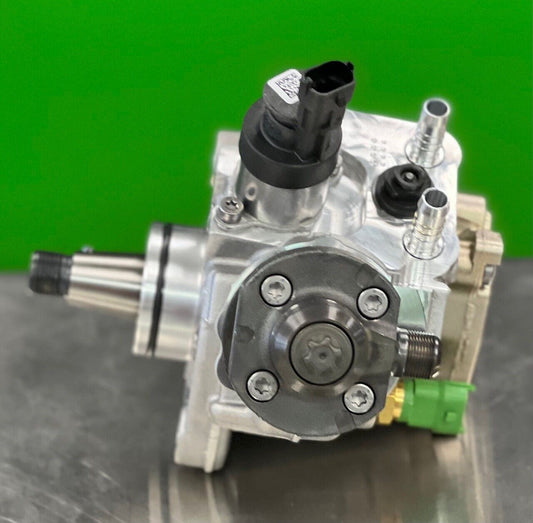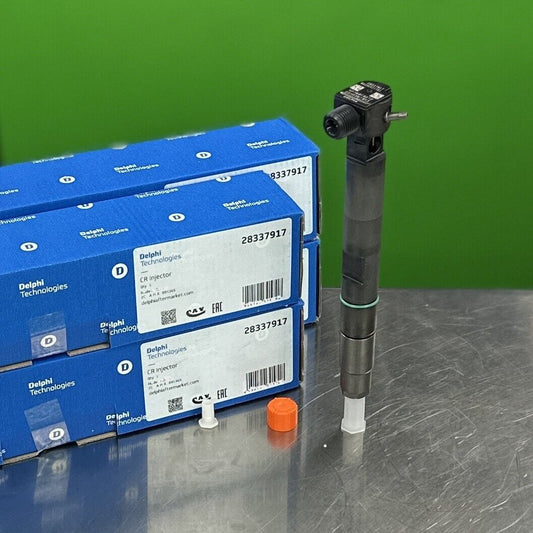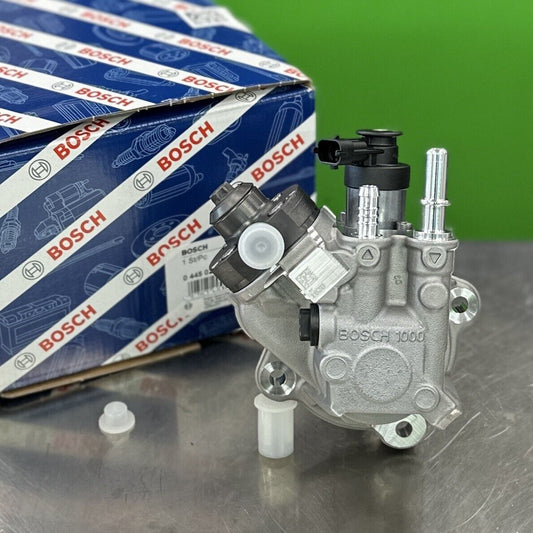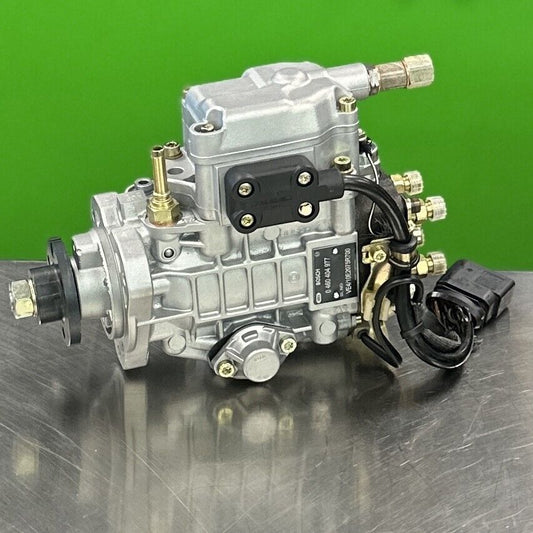Preparing Your Diesel Vehicle for Winter in Michigan
Winter in Michigan can be unforgiving, especially for diesel vehicles. The plummeting temperatures and icy conditions can take a toll on your vehicle if not properly prepared. Ensuring your diesel vehicle is winter-ready is crucial to avoid unexpected breakdowns and maintain optimal performance throughout the cold season. Let's delve into the essential steps to winterize your diesel vehicle effectively in Michigan.
Checking the Antifreeze Levels
When it comes to preparing your diesel vehicle for winter in Michigan, checking the antifreeze levels is crucial to ensure your engine's protection in the cold weather. Antifreeze, also known as coolant, plays a vital role in preventing freezing and potential damage to the engine block. Without adequate levels of antifreeze, your vehicle is at risk of engine failure due to freezing temperatures.
One essential aspect to consider when checking antifreeze levels is the concentration of the mixture. It's recommended to have a 50/50 mix of antifreeze and water in your radiator to provide the best protection against freezing. This optimal ratio ensures that the coolant can withstand the low temperatures typical of Michigan winters.
Additionally, inspecting the condition of the antifreeze is equally important. Over time, antifreeze can degrade and become less effective at protecting your engine. Make sure to visually check the coolant for any signs of contamination or discoloration, as these could indicate the need for a flush and refill of the system.
Furthermore, testing the antifreeze for its freeze point is a wise precaution. You can use a hydrometer or a refractometer to measure the specific gravity of the coolant, which will indicate its ability to prevent freezing at low temperatures. Ensuring that the antifreeze is capable of protecting your engine down to the expected winter temperatures in Michigan is essential for reliable vehicle performance.
In conclusion, checking and maintaining the antifreeze levels in your diesel vehicle is a critical step in winterizing your vehicle for the harsh conditions in Michigan. By verifying the concentration, condition, and freeze point of the coolant, you can safeguard your engine against freezing and ensure optimal performance throughout the cold winter months.
Inspecting the Battery
When it comes to preparing your diesel vehicle for winter in Michigan, one crucial aspect that should not be overlooked is inspecting the battery. The cold weather can be particularly harsh on batteries, making it essential to ensure that your battery is in optimal condition to avoid any starting issues during the winter months.
One of the key things to check when inspecting the battery is its overall condition. Look for any signs of corrosion on the terminals or cables, as this can impede the battery's performance. Additionally, check the battery's charge level to ensure it is fully charged and ready to handle the increased demands of winter driving.
Another important aspect to consider is the battery's capacity to hold a charge in cold temperatures. Cold weather can significantly reduce a battery's effectiveness, so it's vital to have a battery that is designed to withstand the cold. If your current battery is not rated for cold weather, consider investing in a cold-weather battery to prevent any issues.
Furthermore, inspect the battery for any signs of damage or leaks. Any physical damage to the battery can lead to performance issues and potential safety hazards. If you notice any leaks or visible damage, it's crucial to replace the battery before the winter sets in to avoid any unexpected breakdowns.
Regularly checking and maintaining your vehicle's battery is a simple yet effective way to ensure that your diesel vehicle starts reliably during the cold winter months. By taking the time to inspect the battery and address any issues proactively, you can avoid being stranded in the cold due to a dead or malfunctioning battery.
Changing to Winter Diesel Fuel
When it comes to preparing your diesel vehicle for winter in Michigan, one crucial step is changing to winter diesel fuel. This fuel type contains additives that prevent gelling and ensure your engine runs smoothly even in the coldest temperatures. By making this switch, you can protect your engine from potential issues that may arise due to the cold weather conditions.
Winter diesel fuel is specifically designed to perform well in low temperatures, unlike regular diesel fuel that can thicken and clog the fuel system when exposed to cold weather. The additives in winter diesel fuel help lower the gel point, allowing the fuel to flow freely and prevent any disruptions in fuel delivery to the engine.
By using winter diesel fuel, you can avoid common winter-related problems such as fuel filter clogging, fuel line freezing, and engine stalling. This proactive approach ensures that your diesel vehicle operates efficiently and reliably throughout the winter season, giving you peace of mind during your cold weather journeys.
Examining the Glow Plugs
When it comes to preparing your diesel vehicle for winter in Michigan, examining the glow plugs is a crucial step to ensure smooth operation in cold weather conditions. Glow plugs play a vital role in starting a diesel engine, especially in low temperatures where the engine might struggle to ignite. By checking and maintaining your glow plugs, you can avoid potential starting issues and keep your vehicle running efficiently throughout the winter.
One important aspect to consider when examining the glow plugs is their condition. Are they in good shape, or do they show signs of wear and tear? Damaged glow plugs can lead to difficulties in starting your diesel vehicle, particularly on chilly mornings. Make sure to inspect each glow plug carefully for any signs of damage or malfunction.
Testing the functionality of the glow plugs is equally essential. A faulty glow plug can disrupt the combustion process in the engine, affecting its performance. Utilize a multimeter to check the resistance of each glow plug and ensure they are within the manufacturer's specified range. Replace any glow plugs that do not meet the required resistance levels to guarantee optimal engine starting.
Additionally, consider the wiring connected to the glow plugs. Faulty or damaged wiring can prevent the glow plugs from receiving the necessary electrical power, leading to starting issues. Inspect the wiring harness for any signs of wear, corrosion, or loose connections. Address any issues promptly to maintain the proper functioning of the glow plugs.
Remember that glow plugs are essential components for diesel engines, especially in cold weather conditions. Just like how a spark plug ignites gasoline in a gasoline engine, glow plugs heat up the combustion chamber in a diesel engine to facilitate ignition. Ensuring that your glow plugs are in optimal condition and functioning correctly can make a significant difference in the performance and reliability of your diesel vehicle during the winter months.
Checking the Tire Pressure and Tread
When it comes to preparing your diesel vehicle for winter in Michigan, checking the tire pressure and tread is crucial to ensure safety and optimal performance on icy roads. Proper tire maintenance can make a significant difference in how your vehicle handles in winter conditions.
Start by checking the tire pressure regularly, as cold weather can cause tire pressure to drop. Low tire pressure can affect fuel efficiency, tire wear, and overall vehicle handling. Use a tire pressure gauge to measure the pressure and adjust it according to the manufacturer's recommendations. Properly inflated tires provide better traction and stability on snow-covered roads.
In addition to tire pressure, inspecting the tread depth is essential for winter driving. Tires with worn-out treads are more prone to slipping and losing grip on icy surfaces. You can use the penny test to check the tread depth – insert a penny into the tread with Lincoln's head facing down. If you can see the top of Lincoln's head, it's time to replace the tires. Investing in winter tires with deeper treads can greatly improve traction and braking performance in snowy conditions.
Furthermore, consider the type of tires you are using on your diesel vehicle. All-season tires may not provide adequate traction in severe winter conditions. Winter tires are specifically designed to handle cold temperatures and icy roads, offering better grip and control. Switching to winter tires can enhance your vehicle's performance and safety during the winter months.
Regularly rotating your tires can also help ensure even wear and prolong their lifespan. Uneven tire wear can impact handling and stability, especially on slippery roads. By rotating your tires according to the manufacturer's recommendations, you can maintain balanced traction and improve overall driving experience in winter.
Frequently Asked Questions
-
What is the importance of checking antifreeze levels in a diesel vehicle?
Checking antifreeze levels is crucial to prevent freezing and potential damage to the engine block during cold winter months in Michigan. Proper antifreeze levels help maintain the engine's temperature and ensure optimal performance.
-
How does cold weather affect diesel vehicle batteries?
Cold weather can significantly reduce the efficiency of batteries in diesel vehicles, leading to starting issues. Inspecting the battery's condition and charge before winter is essential to avoid potential breakdowns.
-
Why is it important to switch to winter diesel fuel?
Switching to winter diesel fuel with additives is essential to prevent gelling, which can hinder engine operation in cold temperatures. Winter diesel fuel ensures smooth engine performance even in freezing conditions.
-
What role do glow plugs play in starting a diesel vehicle in cold weather?
Glow plugs are crucial components that help ignite the fuel in diesel engines, especially during cold starts. Inspecting and testing glow plugs before winter ensures easy and reliable starting in chilly conditions.
-
How does tire pressure and tread depth impact driving in winter?
Maintaining proper tire pressure and inspecting tread depth is essential for improved traction and handling on icy roads during winter. Adequate tire maintenance enhances overall safety and control while driving in challenging conditions.



